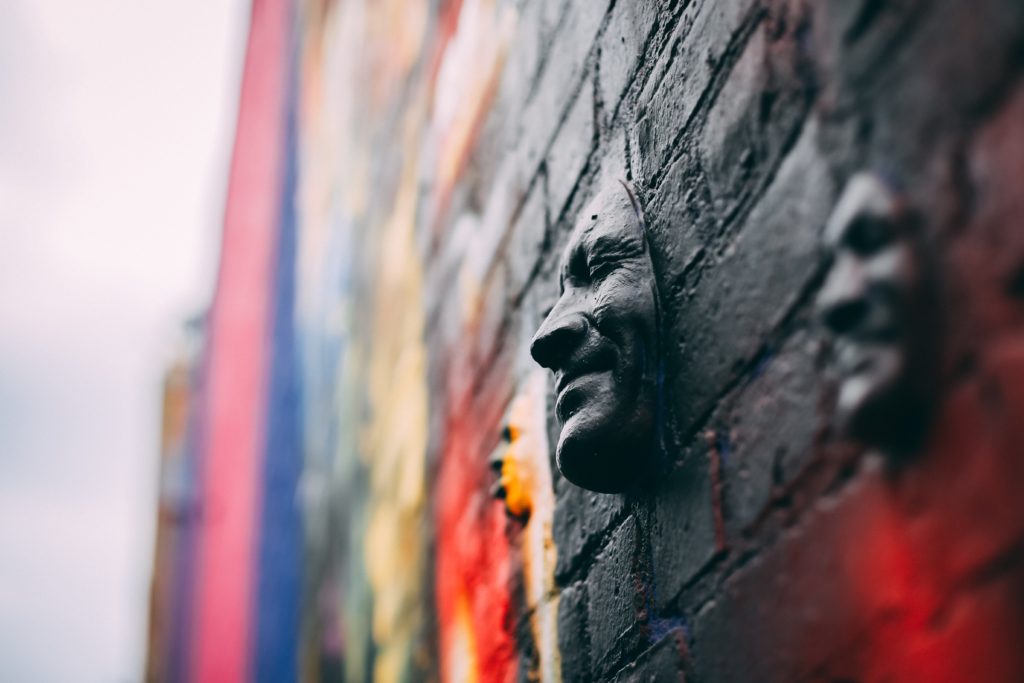Have You Witnessed the Five Faces of Loss?
Have you had any losses lately?
As I look around me, I see the faces of loss everywhere. Not all loss is created equal but to some degree, all loss needs to be noticed and processed.
In this article, I want to share these five faces of loss to help you both notice the losses you may have experienced, and consider the value of grieving any unprocessed losses you’ve had. As a witness to several of these faces in my own life, my hope is that you will feel supported in your loss and find new courage to step the next step in your grieving.

The Five Faces of Loss
Face #1: Loss of a loved one
This is often what people think of when they think of loss. I’ve experienced first hand the loss of a loved one when my wife Vicky passed from cancer in 2020. But I’m not alone.
Many of you have lost family members, close friends, neighbors, and people you’ve worked with. We have also been impacted by the loss of people we haven’t even met.
Face #2: Loss of identity
An identity loss often happens when there is a change in role or relationship. When your spouse dies, you are no longer a husband or wife. When you are divorced, you are no longer a husband or wife. When you lose your job your identity changes.
When your children leave home, the relationship changes. You are not longer the provider and protector but the adult friend and parent of your children.
Face #3: Loss of safety
A serious accident can cause you to lose your sense of safety. Family trauma can create a loss of safety. Natural disasters like a fire, flood, or hurricane can create a loss of safety.
Face #4: Loss of autonomy
The loss of autonomy happens when you lose control of your life or independence. This can be caused by an illness, accident, declining health, disability or financial setback. I lost autonomy when I had my motorcycle accident. I had to rely on people to do everything for me for some time and was deeply affected by this.
Face #5: Loss of dreams or expectations
This face showed up everywhere during the pandemic. No graduations. Canceled travel plans. The inability to see family.
Athletes who prepare all their lives for the big moment and then they have a career ending injury. A dream is shattered. When Vicky died I lost the dream of growing old together. The motorcycle accident stole the dream of running the Boston marathon.
Two Places to Start to Process Your Loss
Which of the five faces resonate with you? Here are two actions you can take to give meaning to your grief.
- Name your loss
Grieving starts when you see and name what you have lost. Some losses are obvious while others are harder to put your finger on it. Naming your loss gives you the opportunity to admit it’s real and open the door to be present with the emotions that may come with it.
Honest reflection and awareness is key to thorough grieving. If you minimize your loss because you don’t understand the impact it’s having on you, you end up with superficial and ineffective grief.
2. Be grateful for what you have
I learned to say after my motorcycle accident, “I’m going to focus on what’s left, not what’s lost.” Easier said than done but when done, it is a gift you give yourself and others.
Gratitude puts you on the road to recovery ever so slightly. It also creates chemicals in your body that support your healing and gets your mind off your pain if only for a moment.
When I was grieving Vicky’s death, I was so grateful for the short texts I would receive from friends or the smell of the Spring flowers that were blooming while I walked around the block. Step by step I moved forward.
Questions to reflect on
- What loss have you had that you need to name and create space to process?
- What are you grateful for today in spite of whatever loss you may be processing in your life?
About Cam Taylor
Coach, author, speaker, father, friend, leader, life long learner.